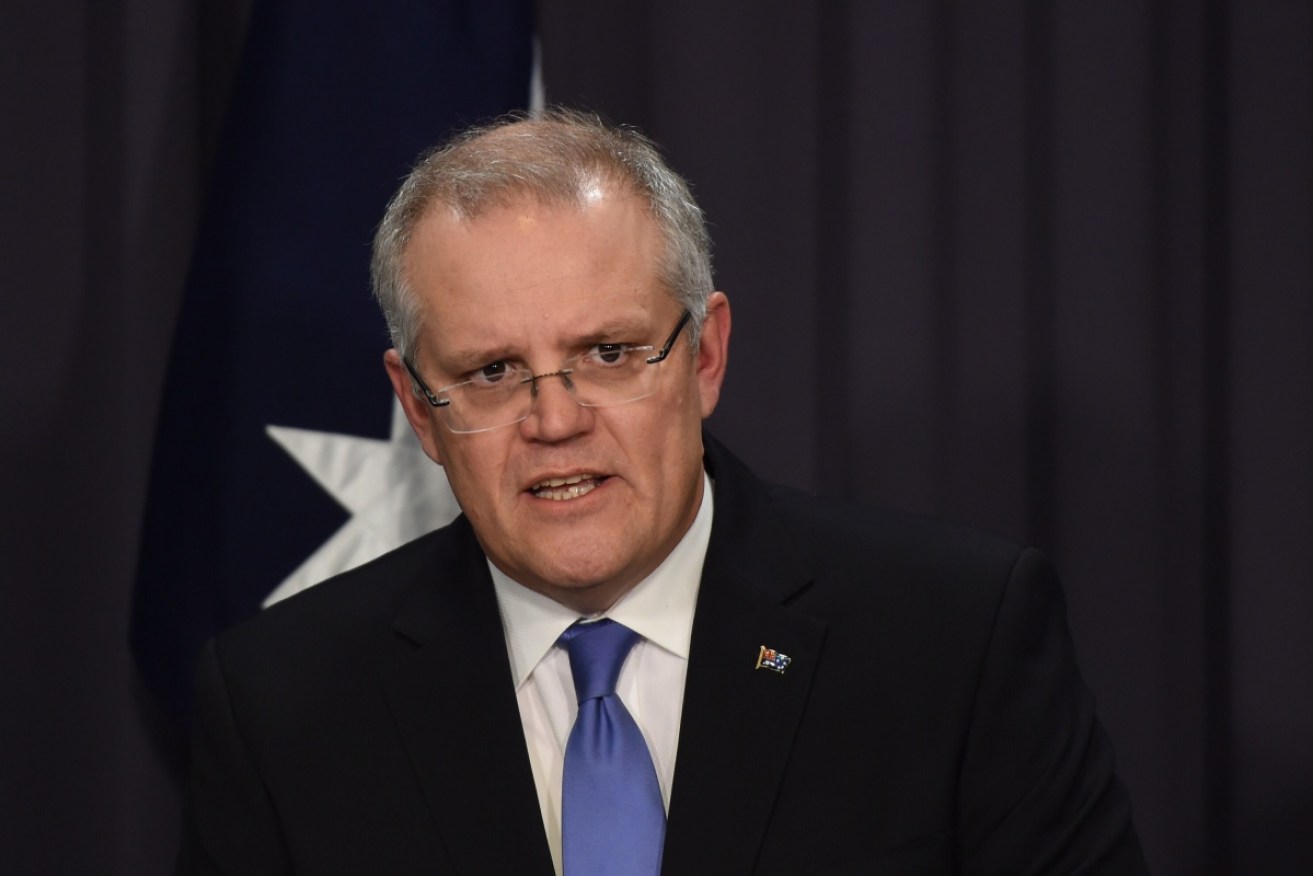Time for a bit more budget honesty Mr Morrison


Treasurer Scott Morrison has threatened tax rises if the government's welfare reforms are blocked in the Senate. Photo: AAP
The Turnbull government’s mid-year budget update was less of a shock that many expected, though a fall in forecast tax revenues of $30.7 billion over four years is bad news that Treasurer Scott Morrison would prefer not to give us.
The budget deficit is forecast to improve slightly in this financial year, but to end up $10.3 billion further in the red over the next four years — pushing federal government debt to the still low-ish figure of 19 per cent of GDP.
The adjustments in the Mid-Year Economic and Fiscal Outlook (MYEFO) are not large enough in themselves to warrant a credit-rating downgrade for the government from international agencies.
Economist Stephen Koukoulas tells me that if the downgrade comes –and it almost certainly will – it will have as much to do with the size of the trade deficit or currency fluctuations as with the government’s “budget repair” strategy.
So this update sends two signals.
Firstly, that the government has made some progress is reining in the expenditure side of running the country.
It notes that “total payments are forecast to reduce by $18.5 billion across the forward estimates compared to the 2016 pre-election fiscal outlook [PEFO]”.
That’s positive, given that some of its big-ticket savings have been blocked by the Senate – many of them remnants of the disastrous Abbott-government budget of 2014, such as making young job seekers wait months for welfare benefits.
Secondly, MYEFO is telling us what we’ve known for some time – that Mr Morrison and Treasury were again too optimistic in key forecasts:
- GDP growth is revised down for this year from 2.5 to 2 per cent
- Jobs growth is revised down from 1.75 per cent to 1.25 per cent, which is less than the rate of population growth (1.4 per cent)
- Tax revenue, as noted above, is down $3.7 billion this year and $30.7 billion over four years
To put that forecasting error in perspective, former treasurer Wayne Swan saw his mining-boom related tax revenue crash in 2012/13, when around $17 billion disappeared over those 12 months due to tumbling commodity prices.
Mr Morrison, by contrast, is facing a much smaller revenue slump.
Why are we still getting it so wrong?
But the fact remains that after years of over-optimistic forecasts, you’d think that the Department of Treasury, and the political masters who cherry-pick their figures for the budget and MYEFO documents, should know better.
The mining-boom’s contribution to the economy peaked in late 2011.
The subsequent hit to economic activity has weighed on price and wage inflation, kept interest rates at record lows and made business wary of investing to create new jobs.
That’s been baked in to the economy since 2011.
If Mr Morrison didn’t know that, then he’s a victim on his own upbeat “jobs and growth” rhetoric.
These numbers reinforce a simple truth – it’s time to be more honest with voters about the seriousness and pain being felt by households during this historic post-boom economic adjustment.








